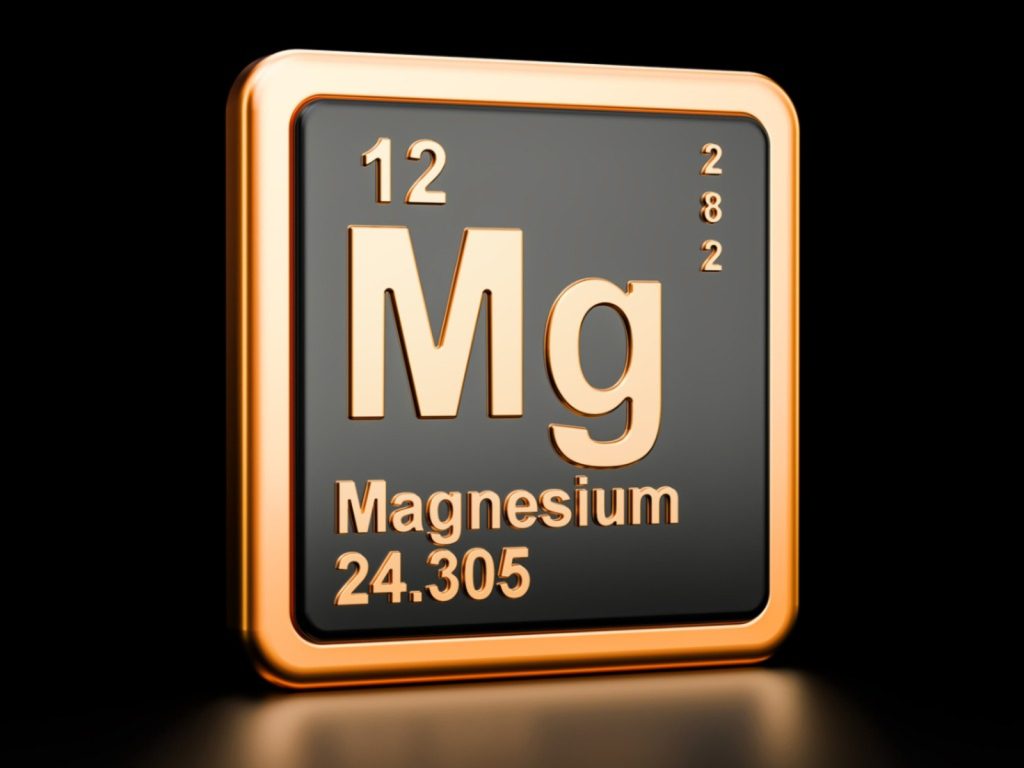The human body needs different types of nutrients to survive and grow well. These nutrients include protein, minerals, fat, carbohydrates, vitamins, and more. Magnesium is one of the minerals that the human body requires. In fact, it is one of the important minerals that people need to stay healthy. The reason behind the same is that magnesium plays a key role in the cell nuclei of living organisms.
Magnesium performs a variety of functions inside the human body. Some of the functions include supporting a healthy immune system, maintaining bone strength, maintaining muscle function, building proteins, regulating blood pressure, regulating blood sugar, keeping the heartbeat steady, and so on.
In this blog post, we will see how you can derive benefits from magnesium for weight loss. But before that, let’s learn some more details about magnesium. This mineral is one of the key electrolytes that a human body needs. Electrolytes are responsible for carrying out numerous functions, such as regulating nerve and muscle function, balancing blood acidity, and keeping the body hydrated. They are chemicals that carry an electric charge. Electrolytes conduct electricity when they get dissolved in water.

Which Foods Contain Magnesium? What are the Signs of Magnesium Deficiency?
Table of Contents
After reading the previous paragraphs, you must have understood that your diet should contain the necessary amount of magnesium. Some of the foods that contain magnesium in sufficient amounts are whole grains, wheat, black beans, black-eyed beans, chickpeas, spinach, peanuts, mustard seeds, pumpkin seeds, chia seeds, almonds, cashews, quinoa, tofu, yogurt, bananas, papayas, raspberries, and dark chocolate.
In simple words, whole grains, dark leafy greens, legumes, beans, nuts, seeds, fruits, and dark chocolate are rich in magnesium. You can include these items in your meals to make sure that your body gets magnesium. A few symptoms that indicate the deficiency of magnesium are fatigue, muscle weakness, cramps, nausea, shaking, and loss of appetite.

Why Should You Consider Magnesium for Weight Loss? Will It Help You?
We know that you might not have heard about the fact that magnesium can help you in losing weight. But it’s true, as many studies have proved it. The effects of magnesium on the human body lead to a reduction in weight. You might understand it better after reading the points mentioned below.
Magnesium Gives You the Energy for Working Out
As we have mentioned earlier in this blog post, magnesium is one of the key electrolytes. The other electrolytes that a human body needs are sodium, potassium, calcium, phosphate, and chloride. Thus, magnesium replenishes the cells in your body.
Magnesium is useful in the production of ATP, i.e., adenosine triphosphate, an organic compound that carries energy found in the cells of all living organisms. It helps your body in deriving energy from the food and beverages you consume. Therefore, magnesium makes you stay energized during continuous and tough workouts. You can lose weight fast when you work out regularly.

Magnesium Helps Your Body Fight with Inflammation
You might be wondering, “What is the relationship between magnesium for weight loss and inflammation?”. Well, let us explain it here. Inflammation hampers the functioning of the hormones that regulate metabolism. It also creates problems in the hunger system of your body. When the metabolism in your body gets disrupted, you can feel hungrier.
As a result, you will end up eating more, which will lead to weight gain. Inflammation is also responsible for insulin resistance, and thus, your body will retain water weight. The deficiency of magnesium is one of the reasons why chronic inflammation develops in your body. You can combat inflammation by taking the required level of magnesium. If your diet contains foods that have magnesium, you will not have to worry about water weight.
Magnesium Reduces Stress and Enhances Sleep Quality
In today’s time, mental problems like anxiety, stress, and panic disorder have become quite common. More and more people have started to face these issues. Such mental problems hamper your productivity and quality of sleep.

It’s a known fact that the human body releases a stress hormone known as ‘cortisol’ due to stress and lack of sleep. Cortisol makes your body store extra fat. You can get rid of this fat by incorporating magnesium-rich foods into your diet.
Thus, it’s easy to see how magnesium for weight loss is indeed a scientifically-proven fact and not just a myth. Magnesium is highly helpful for athletes who want to improve their performance. Some studies have also shown that magnesium can provide relief from symptoms related to PMS, i.e., Premenstrual Syndrome.
It’s important to mention here that if you are trying to lose weight, you should focus on not only diet but also physical exercise. You can start working out at your home itself if you don’t like going to a gym or a health center. You can choose a suitable workout type from different types of workouts, such as swimming, jogging, Pilates, cardio, and so on.

Conclusion
Magnesium offers both physiological and psychological benefits. It can boost your mood and help you fight symptoms of depression. As you now know which foods contain magnesium, you can take them into account while making your meal plans.

